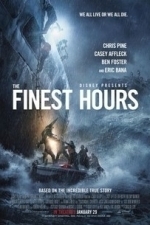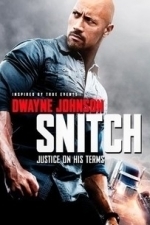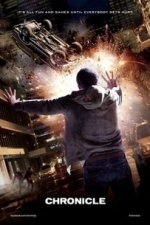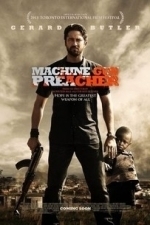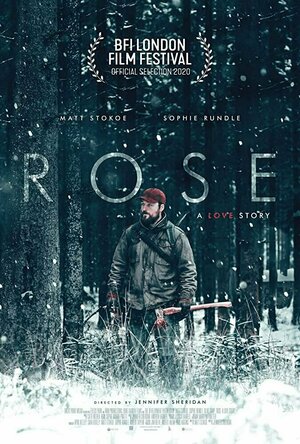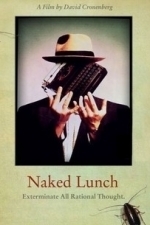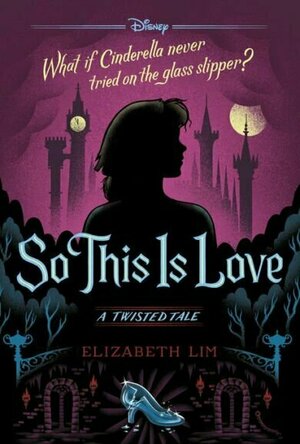Search
Search results
Gareth von Kallenbach (980 KP) rated The Finest Hours (2016) in Movies
Aug 6, 2019
The Finest Hours tells the story of four men who, in February of 1952, undertook one of the most daring rescue attempts in the history of the Unites States Coast Guard. A tanker, the SS Pendleton, is caught in a storm off the coast of New England and is ripped in half, leaving more than 30 sailors adrift and sinking. While Bernard Webber (Chris Pine) leads an impossible rescue in a lifeboat designed to hold only 12, his fiancée, Miriam (Holliday Grainger), struggles to come to terms with what it means to be the wife of a man who has to willingly risk his life for others.
Year after year, it proves out. January is just not a good month for cinema. With one hand, the studios campaign for award season glory and with the other, dump their trash. That’s not to say The Finest Hours is total garbage. Even I’m not that cynical to unconditionally condemn something that shines a light on the triumph of the human spirit when faced with insurmountable odds. It’s just that there is only about one-third of a good film here. Anytime the crew of the Pendelton was onscreen, I was captivated. Their struggle for survival and their feats of engineering under incredible pressure make for riveting entertainment and should have been a film unto itself. These scenes unfortunately are interspaced with and, more often than not, forced to take a back seat to paint-by-numbers dialogue, two-dimensional caricatures (both disappointing when you consider the three writers on this film were behind The Fighter) and a shockingly abrasive score during the main U.S. Coast Guard narrative. And yes, it may be called The Finest Hours, but if that’s the title they’re going with a little more effort should have been put into the rescuers, as opposed to those being rescued. Overall, we’re deprived of a sense of urgency, in what is supposed to be a race against time, and an intimacy with any character performed well enough to be worth caring about.
At least this isn’t a complete waste of an all-star cast. I’ll ease off on Chris Pine, tempted as I might be to pick on him. After having fumbled his way through both Captain Kirk and Jack Ryan, doing so now in a flick produced by Disney would feel rather like a cheap shot. Instead it’s fairer to write off the other, usually more dependable leads and praise Casey Affleck, who alone makes The Finest Hours watchable. Ironically, he plays the man who has to keep not only half a ship afloat, but an entire crew together. Between Eric Bana’s overstatement, Ben Foster’s understatement, and a questionable casting choice in Holliday Grainger, Affleck is heads above the rest when it comes to making courage and sentiment ring true.
A regrettable execution notwithstanding, better can and should have been done to honor these distinguished service members and viewers looking for a storytelling standard above the level of your average Hallmark original are advised to look elsewhere. Try, for instance, Oliver Stone’s (not as controversial as we all thought it was going to be) World Trade Center for a better example of how these tales of perseverance and survival are supposed to be done.
Year after year, it proves out. January is just not a good month for cinema. With one hand, the studios campaign for award season glory and with the other, dump their trash. That’s not to say The Finest Hours is total garbage. Even I’m not that cynical to unconditionally condemn something that shines a light on the triumph of the human spirit when faced with insurmountable odds. It’s just that there is only about one-third of a good film here. Anytime the crew of the Pendelton was onscreen, I was captivated. Their struggle for survival and their feats of engineering under incredible pressure make for riveting entertainment and should have been a film unto itself. These scenes unfortunately are interspaced with and, more often than not, forced to take a back seat to paint-by-numbers dialogue, two-dimensional caricatures (both disappointing when you consider the three writers on this film were behind The Fighter) and a shockingly abrasive score during the main U.S. Coast Guard narrative. And yes, it may be called The Finest Hours, but if that’s the title they’re going with a little more effort should have been put into the rescuers, as opposed to those being rescued. Overall, we’re deprived of a sense of urgency, in what is supposed to be a race against time, and an intimacy with any character performed well enough to be worth caring about.
At least this isn’t a complete waste of an all-star cast. I’ll ease off on Chris Pine, tempted as I might be to pick on him. After having fumbled his way through both Captain Kirk and Jack Ryan, doing so now in a flick produced by Disney would feel rather like a cheap shot. Instead it’s fairer to write off the other, usually more dependable leads and praise Casey Affleck, who alone makes The Finest Hours watchable. Ironically, he plays the man who has to keep not only half a ship afloat, but an entire crew together. Between Eric Bana’s overstatement, Ben Foster’s understatement, and a questionable casting choice in Holliday Grainger, Affleck is heads above the rest when it comes to making courage and sentiment ring true.
A regrettable execution notwithstanding, better can and should have been done to honor these distinguished service members and viewers looking for a storytelling standard above the level of your average Hallmark original are advised to look elsewhere. Try, for instance, Oliver Stone’s (not as controversial as we all thought it was going to be) World Trade Center for a better example of how these tales of perseverance and survival are supposed to be done.
Gareth von Kallenbach (980 KP) rated Snitch (2013) in Movies
Aug 7, 2019
I’m a huge fan of Dwayne “The Rock” Johnson. His wrestling persona is
extremely entertaining and he’s a pretty decent actor. He did good with this movie but it wasn’t enough.
The premise of the movie is based on ‘true events’ (whatever that
means), it’s more about a law that’s real in our country right now, I’ll get in to that later.
There are a lot of characters so stick with me. The Rock plays John
Matthews, he owns his own construction business. He has an ex-wife, Sylvie Collins played by Melina Kanakaredes, and a current wife, Analisa played by Nadine Velazquez.
Johnand Analisa
have a daughter Isabella and he has a son with Sylvie, Jason Collins played by Rafi Gavron. The other major players are Barry Pepper who plays undercover DEA agent Cooper; Susan Sarandon who plays Joanne Keeghan a US Attorney; Jon Bernthal
who plays Daniel James an ex-con trying to get his life back together; Michael Kenneth Williams who plays Malik, a drug dealer; and Benjamin Bratt who plays Cartel leader Juan Carlos. Out of all of these, I liked Daniel, Agent Cooper, John Matthews, Malik and
Joanne Keeghan, in that order.
The law the movie is based on is about mandatory minimums. If you are
holding and it’s enough to distribute then you go to jail. The length of your jail time is based on how
much you are holding when you’re caught. In this case, Jason, who is 18 and still in high
school, is set up by his ‘best friend’. This friend sends him a huge bag of ecstasy against Jason’s wishes.
When the package arrives Jason gets caught because it’s a
sting. His jail time based on the amount of ecstasy is ten years in a prison that holds murderers, rapist and violent criminals.
The movie starts excruciatingly slow, the real action doesn’t start until
almost halfway through, or at least it felt like it. It’s good once you get there but I wasn’t really into
the people in it/living it. I kept thinking of the actors as themselves not the characters
they were playing, even the ones I liked. There were too many close ups and‘in action’ scenes that involved someone with a camera running or walking next to the actor.
I getthat it was to try and build apprehension and anxiety but it was more annoying and kept pulling me out of the story so I couldn’t connect emotionally with the characters.
I didn’t believe the union between John and Analisa or that there had been one with Sylvie, there was no familiarity and I didn’t believe the love or tension between them.
John was a business man who’s never seen action so he’s kind of a wuss, but it’s the Rock, a huge tall muscle-y intense looking guy. Whenever he flinched I kept waiting for him to kick ass but he never does.
Then in another scene he’s magically badass, shooting
a shotgun one handed out of the window of a semi-truck he’s driving.
The movie was more about showing people this heinous law then entertainingus. I don’t like that, it’s not why I go to movies. The only saving grace would have been if it had been really entertaining but it was only mildly entertaining at best.
I’d say rent it if you like the Rock or if you’re curious, it wouldn’t be too much of a waste of your time but
definitely don’t waste your money in a theatre.
extremely entertaining and he’s a pretty decent actor. He did good with this movie but it wasn’t enough.
The premise of the movie is based on ‘true events’ (whatever that
means), it’s more about a law that’s real in our country right now, I’ll get in to that later.
There are a lot of characters so stick with me. The Rock plays John
Matthews, he owns his own construction business. He has an ex-wife, Sylvie Collins played by Melina Kanakaredes, and a current wife, Analisa played by Nadine Velazquez.
Johnand Analisa
have a daughter Isabella and he has a son with Sylvie, Jason Collins played by Rafi Gavron. The other major players are Barry Pepper who plays undercover DEA agent Cooper; Susan Sarandon who plays Joanne Keeghan a US Attorney; Jon Bernthal
who plays Daniel James an ex-con trying to get his life back together; Michael Kenneth Williams who plays Malik, a drug dealer; and Benjamin Bratt who plays Cartel leader Juan Carlos. Out of all of these, I liked Daniel, Agent Cooper, John Matthews, Malik and
Joanne Keeghan, in that order.
The law the movie is based on is about mandatory minimums. If you are
holding and it’s enough to distribute then you go to jail. The length of your jail time is based on how
much you are holding when you’re caught. In this case, Jason, who is 18 and still in high
school, is set up by his ‘best friend’. This friend sends him a huge bag of ecstasy against Jason’s wishes.
When the package arrives Jason gets caught because it’s a
sting. His jail time based on the amount of ecstasy is ten years in a prison that holds murderers, rapist and violent criminals.
The movie starts excruciatingly slow, the real action doesn’t start until
almost halfway through, or at least it felt like it. It’s good once you get there but I wasn’t really into
the people in it/living it. I kept thinking of the actors as themselves not the characters
they were playing, even the ones I liked. There were too many close ups and‘in action’ scenes that involved someone with a camera running or walking next to the actor.
I getthat it was to try and build apprehension and anxiety but it was more annoying and kept pulling me out of the story so I couldn’t connect emotionally with the characters.
I didn’t believe the union between John and Analisa or that there had been one with Sylvie, there was no familiarity and I didn’t believe the love or tension between them.
John was a business man who’s never seen action so he’s kind of a wuss, but it’s the Rock, a huge tall muscle-y intense looking guy. Whenever he flinched I kept waiting for him to kick ass but he never does.
Then in another scene he’s magically badass, shooting
a shotgun one handed out of the window of a semi-truck he’s driving.
The movie was more about showing people this heinous law then entertainingus. I don’t like that, it’s not why I go to movies. The only saving grace would have been if it had been really entertaining but it was only mildly entertaining at best.
I’d say rent it if you like the Rock or if you’re curious, it wouldn’t be too much of a waste of your time but
definitely don’t waste your money in a theatre.
Gareth von Kallenbach (980 KP) rated Chronicle (2012) in Movies
Aug 7, 2019
Walking into the theatre to see Chronicle I was pretty excited. I had not heard much about this movie, in fact I’ll be honest here… I heard a small amount of info about two months ago and then it dropped off my radar before a trailer appeared last Sunday.
The trailer was enough for me to believe that this movie was going to be different than some of the other superhero/people with powers movies out there. I must say I was not disappointed.
That being said, the movie was not quite what I expected. This film was not presented as a high-quality cinematic experience the way movies such as “X-men: First Class” were. Instead, think “Paranormal Activity” meets Heroe and you get a better understanding of the film. Most of the movie is viewed through a video camera that the main character is toting around to “chronicle” his life. The film also does a creative job of being able to portray events when it doesn’t make sense for the video camera to be around. Overall, I think they did a good job in the presentation. But now to the meat and potatoes.
Set in Seattle, Chronicle follows Andrew Detmer (Dane DeHaan, True Blood and In Treatment), a troubled teen who is having trouble fitting in with his fellow seniors at school. He has to deal with his abusive father and ill mother all the while traversing day to day life as the social reject. His cousin Matt (Alex Russell, Wasted on the Young) is his only real friend, and Andrew has his suspicions about that relationship as well.
At a high school party Matt and Steve Montgomery (Michael B. Jordan, Hard Ball and Friday Night Lights [TV]), the class president hopeful, come across a mysterious hole in the ground. Matt and Steve search Andrew out and convince him to go with them to record what could possibly be down in the hole.
They venture down in and find something almost indescribable. A meteor of some type had crashed in through the earth, only you don’t really know if this thing is a meteor or some type of living organism. Something goes wrong, and we are left wondering about the boys’ safety until we next see the boys a few weeks later and discover that they’ve been changed by their contact with this “meteor”. They now have telekinetic powers. Though weak at first, it is clear that the boys begin developing the power as they would a muscle and their relationship as friends begins to strengthen as well. We begin to focus on Andrew even more and see how he comes to terms with these new found abilities, and the affect it has on him as he continues to live his troubled life. As things begin to escalate, he starts to lose his grip on reality to a disastrous end.
While not a blockbuster movie in any sense of the word, this film definitely has a story to tell. It brings us back to a seemingly recurring theme over the past decade or so: don’t bully or ostracize people, or they could snap. While I did not feel that the events leading to the climatic high point in the movie were portrayed in such a fashion that you would believe Andrew would have reacted the way he did, it was still a very entertaining film.
The trailer was enough for me to believe that this movie was going to be different than some of the other superhero/people with powers movies out there. I must say I was not disappointed.
That being said, the movie was not quite what I expected. This film was not presented as a high-quality cinematic experience the way movies such as “X-men: First Class” were. Instead, think “Paranormal Activity” meets Heroe and you get a better understanding of the film. Most of the movie is viewed through a video camera that the main character is toting around to “chronicle” his life. The film also does a creative job of being able to portray events when it doesn’t make sense for the video camera to be around. Overall, I think they did a good job in the presentation. But now to the meat and potatoes.
Set in Seattle, Chronicle follows Andrew Detmer (Dane DeHaan, True Blood and In Treatment), a troubled teen who is having trouble fitting in with his fellow seniors at school. He has to deal with his abusive father and ill mother all the while traversing day to day life as the social reject. His cousin Matt (Alex Russell, Wasted on the Young) is his only real friend, and Andrew has his suspicions about that relationship as well.
At a high school party Matt and Steve Montgomery (Michael B. Jordan, Hard Ball and Friday Night Lights [TV]), the class president hopeful, come across a mysterious hole in the ground. Matt and Steve search Andrew out and convince him to go with them to record what could possibly be down in the hole.
They venture down in and find something almost indescribable. A meteor of some type had crashed in through the earth, only you don’t really know if this thing is a meteor or some type of living organism. Something goes wrong, and we are left wondering about the boys’ safety until we next see the boys a few weeks later and discover that they’ve been changed by their contact with this “meteor”. They now have telekinetic powers. Though weak at first, it is clear that the boys begin developing the power as they would a muscle and their relationship as friends begins to strengthen as well. We begin to focus on Andrew even more and see how he comes to terms with these new found abilities, and the affect it has on him as he continues to live his troubled life. As things begin to escalate, he starts to lose his grip on reality to a disastrous end.
While not a blockbuster movie in any sense of the word, this film definitely has a story to tell. It brings us back to a seemingly recurring theme over the past decade or so: don’t bully or ostracize people, or they could snap. While I did not feel that the events leading to the climatic high point in the movie were portrayed in such a fashion that you would believe Andrew would have reacted the way he did, it was still a very entertaining film.
Gareth von Kallenbach (980 KP) rated Machine Gun Preacher (2011) in Movies
Aug 7, 2019
“Machine Gun Preacher” stars Gerard Butler, Michelle Monaghan, Kathy Baker, Michael Shannon, Madeline Carrol, and is directed by Marc Foster (previously directed “The Kite Runner” , “Quantum Of Solace” , “Monsters Ball” , and “Finding Neverland”).
The movie follows the true life story of Sam Childers (Gerard Butler) a former biker gang member/drug dealer who, at a major crossroads in his life, experiences a spirtial awakening and becomes a devoted preacher and family man. One day, after hearing another preacher speak about the plight of the thousands of kidnapped and orphaned children in africa as the result of civil war, Childers makes the life changing decision to go to Africa and assist in the building and repair of homes and ‘safe zones’ for refugees that have been damaged or destroyed by the chaos engulfing the countries of Sudan and Uganda. However, upon seeing the destruction and widespread horror inflicted upon the people (in particular the children) Childers decides he cannot stand idly by and do nothing to help.
Ignoring the warnings of overwhlemed peacekeepers and aid workers in the area, Sam decides to construct an orhanage where he thinks it’s needed the most – right in the center of the most volitile area in the Sudan, which also happens to be controlled by the brutal and ultra-violent LRA (Lord’s Resistance Army). The LRA roam from village to village kidnapping children and forcing them to become soliders for the LRA or even worse. In the beginning, Childers meets with success finding as many orphaned children as he can and ferrying them to his orphanage where they find food, shelter, and medical aid. But it is not enough. After several attacks and ambushes, Childers decides he cannot let the LRA continue to sadistically destroy lives. Sam begins to lead missions deep into LRA territory, taking the fight to the enemy while struggling with the knowledge that the situation grows darker every day for the people he is trying to help – in the Sudan and for his family back home.
This movie is definately intense and NOT for the faint of heart. I have not had the chance to read Sam Childers book which the movie is supposedly based on. As far as redemption tales go, this as realistic as it gets, in the sense that sometimes in order to find the salvation or spiritual awakening you seek, you’re forced to sacrifice all and risk losing everything you hold dear in this life in order to find it. Even with the knowledge that once you arrive at the end of that journey, you may not find the awakening you so desperately fought for.
The performances in this movie were all excellent. Kudos to Gerard Butler and Michelle Monaghan in particular. The young actors who portrayed the orphans and child soldiers definately knocked it out of the park as well. Butler also produced the movie which lends more credence to the whole theory that if one of the lead actors has a hand in the behind-the-scences work of the movie, chances are it’ll be a movie worth seein’. I’d encourage you to go see it regardless of the time of day in theaters or grab it on DVD. Rated R for extreme violence throughout and some sexual content.
The movie follows the true life story of Sam Childers (Gerard Butler) a former biker gang member/drug dealer who, at a major crossroads in his life, experiences a spirtial awakening and becomes a devoted preacher and family man. One day, after hearing another preacher speak about the plight of the thousands of kidnapped and orphaned children in africa as the result of civil war, Childers makes the life changing decision to go to Africa and assist in the building and repair of homes and ‘safe zones’ for refugees that have been damaged or destroyed by the chaos engulfing the countries of Sudan and Uganda. However, upon seeing the destruction and widespread horror inflicted upon the people (in particular the children) Childers decides he cannot stand idly by and do nothing to help.
Ignoring the warnings of overwhlemed peacekeepers and aid workers in the area, Sam decides to construct an orhanage where he thinks it’s needed the most – right in the center of the most volitile area in the Sudan, which also happens to be controlled by the brutal and ultra-violent LRA (Lord’s Resistance Army). The LRA roam from village to village kidnapping children and forcing them to become soliders for the LRA or even worse. In the beginning, Childers meets with success finding as many orphaned children as he can and ferrying them to his orphanage where they find food, shelter, and medical aid. But it is not enough. After several attacks and ambushes, Childers decides he cannot let the LRA continue to sadistically destroy lives. Sam begins to lead missions deep into LRA territory, taking the fight to the enemy while struggling with the knowledge that the situation grows darker every day for the people he is trying to help – in the Sudan and for his family back home.
This movie is definately intense and NOT for the faint of heart. I have not had the chance to read Sam Childers book which the movie is supposedly based on. As far as redemption tales go, this as realistic as it gets, in the sense that sometimes in order to find the salvation or spiritual awakening you seek, you’re forced to sacrifice all and risk losing everything you hold dear in this life in order to find it. Even with the knowledge that once you arrive at the end of that journey, you may not find the awakening you so desperately fought for.
The performances in this movie were all excellent. Kudos to Gerard Butler and Michelle Monaghan in particular. The young actors who portrayed the orphans and child soldiers definately knocked it out of the park as well. Butler also produced the movie which lends more credence to the whole theory that if one of the lead actors has a hand in the behind-the-scences work of the movie, chances are it’ll be a movie worth seein’. I’d encourage you to go see it regardless of the time of day in theaters or grab it on DVD. Rated R for extreme violence throughout and some sexual content.

AJIO Online Shopping App
Shopping and Lifestyle
App
WELCOME TO YOUR ONLINE AISLE OF STYLE We know what fashion means to you, and how much you love the...

Clarity: Clear Mind, Better Performance, Bigger Results
Book
LEARN TO CLEAR YOUR MIND AND THINK LIKE A WINNER We all have so much going on. A million different...
Lee (2222 KP) rated Rose: A Love Story (2020) in Movies
Oct 14, 2020
Married couple Sam (Matt Stokoe) and Rose (Sophie Rundle) are living a quiet, simple life in a remote woodland farmhouse. While Rose spends her days indoors, tapping out a novel on a typewriter, Sam is out in the peaceful, snow-covered woods, setting traps and hunting animals. But, right from the outset, it’s clear that this is anything but a relaxing couples retreat.
As Sam cautiously goes about his work, rifle in hand, it’s obvious that he is alert and on edge, flinching at the slightest sounds that come from beyond the trees. Persistent, ominous music also informs us that something isn't quite right and succeeds in putting us quickly on edge too. And when Sam does return to the farmhouse, we learn that Rose has been locked inside, with all the windows boarded up, only the slightest slivers of light entering the gloomy rooms.
Sam and Rose are clearly a couple in love, their actions and conversations appearing genuine and normal. But occasionally the topic of conversation veers towards the unusual, and we continue to be drip-fed even more sinister clues as to what’s actually going on in their lives. When Rose cuts herself while preparing dinner, black veins pulse throughout her finger. Meanwhile, Sam heads off to an ultraviolet-lit room, where he attaches leeches to his body, casually sitting to read a book while they set to work, gorging on his blood. When the couple head outside for a walk one night, Rose wears a face mask while Sam doesn’t. And she talks of “a poison inside her”. You have a fairly good idea of what's going on, but the answers to any questions you have don't come easy, and we're constantly left guessing at which direction the movie is going to take.
Jennifer Sheridan’s feature directorial debut has a wonderfully claustrophobic feel to it, perfectly capturing the feeling of isolation against the beautiful backdrop of a Welsh forest in Winter. Questions hang throughout - how did Rose get this way, what kind of life did the couple lead beforehand, what actually is this illness doing or going to do to her? We're kept in suspense throughout and even when a young runaway called Amber stumbles across the couple, and stays with them overnight, the answers still don’t come easy. Amber just has to accept the fact that Sam is dropping his trousers in front of her in order to attach leeches to himself. And that she must sleep with the ultraviolet light on in her room...
As we neared the very end of the movie, I began to wonder if any of those answers would ever come, or if we would be left to make our own minds up. But thankfully a quick and frantic last-minute change of pace changed all of that, and still managed to end on something of a cliffhanger!
Writer Matt Stokoe (who also plays Sam) says of ‘Rose’ that while watching traditional vampire movies he was struck by the macabre, horror aspects of the vampire genre and the general avoidance of emotional depth shown in the figure of the ‘monster’. The result of his observations is a beautifully simple movie that focuses more on the love of a married couple than the monster that threatens to overpower their relationship. Sam shows that he will do anything for Rose as they struggle with her life-altering illness. Theirs is indeed a true love story.
As Sam cautiously goes about his work, rifle in hand, it’s obvious that he is alert and on edge, flinching at the slightest sounds that come from beyond the trees. Persistent, ominous music also informs us that something isn't quite right and succeeds in putting us quickly on edge too. And when Sam does return to the farmhouse, we learn that Rose has been locked inside, with all the windows boarded up, only the slightest slivers of light entering the gloomy rooms.
Sam and Rose are clearly a couple in love, their actions and conversations appearing genuine and normal. But occasionally the topic of conversation veers towards the unusual, and we continue to be drip-fed even more sinister clues as to what’s actually going on in their lives. When Rose cuts herself while preparing dinner, black veins pulse throughout her finger. Meanwhile, Sam heads off to an ultraviolet-lit room, where he attaches leeches to his body, casually sitting to read a book while they set to work, gorging on his blood. When the couple head outside for a walk one night, Rose wears a face mask while Sam doesn’t. And she talks of “a poison inside her”. You have a fairly good idea of what's going on, but the answers to any questions you have don't come easy, and we're constantly left guessing at which direction the movie is going to take.
Jennifer Sheridan’s feature directorial debut has a wonderfully claustrophobic feel to it, perfectly capturing the feeling of isolation against the beautiful backdrop of a Welsh forest in Winter. Questions hang throughout - how did Rose get this way, what kind of life did the couple lead beforehand, what actually is this illness doing or going to do to her? We're kept in suspense throughout and even when a young runaway called Amber stumbles across the couple, and stays with them overnight, the answers still don’t come easy. Amber just has to accept the fact that Sam is dropping his trousers in front of her in order to attach leeches to himself. And that she must sleep with the ultraviolet light on in her room...
As we neared the very end of the movie, I began to wonder if any of those answers would ever come, or if we would be left to make our own minds up. But thankfully a quick and frantic last-minute change of pace changed all of that, and still managed to end on something of a cliffhanger!
Writer Matt Stokoe (who also plays Sam) says of ‘Rose’ that while watching traditional vampire movies he was struck by the macabre, horror aspects of the vampire genre and the general avoidance of emotional depth shown in the figure of the ‘monster’. The result of his observations is a beautifully simple movie that focuses more on the love of a married couple than the monster that threatens to overpower their relationship. Sam shows that he will do anything for Rose as they struggle with her life-altering illness. Theirs is indeed a true love story.
Andy K (10823 KP) rated Naked Lunch (1991) in Movies
Sep 28, 2019
Exterminate all rational thought.
The closing line from Roger Ebert's TV review of Naked Lunch was "I love what he did, but I hate it!"
Director David Cronenberg has always been known as someone who pushes the envelope of film storytelling to its limit. This is not more on display in maybe any of his films more than it is in Naked Lunch.
In 1952 New York, pest exterminator Bill Lee has an problem in his life. His wife, Joan, has begun using and is now addicted to his "bug powder" he uses in his job. She shoots it into her veins for her narcotics addiction. She is so full of the intoxicant she can even breath on cockroaches to kill them . Bill is arrested for his involvement and begins to trip himself.
His high continues as he now believes he is a secret agent who has been told he must murder his wife. He returns home and actually accidentally does so in a case of ironic accomplishment.
His trip takes him to North Africa where he meets a slew of bizarre and unsavory characters in his attempt to complete his ongoing "mission". He writes a series of articles using a typewriter which continually morphs into a giant cockroach. He finds another man who lets him borrow his typewriter in which his living typewriter is maimed and killed by Bill's device. Another man Bill meets may actually be a giant killer centipede in disguise!
If this doesn't make a lot of sense, I don't think it is really supposed to. Cronenberg's film, according to the writer/director himself, is an amalgam of not only the source material novel by William S. Burroughs, but also other works by the author and even some aspects of Burroughs' own life including the wife shooting incident.
Pretty much right from the start you know you are in for something very unusual when Lee starts having a conversation with his bug typewriter 15 minutes into the film. Then add another conversation with a giant "mugwump" sitting at a bar, a bug that bizarrely speaks in a voice from his bulbous anus and the fore mentioned giant centipede, you have a film in which you never are fully aware of what is real or what has become a drug-filled fantasy.
Cronenberg's fascination with the "body horror" style of film goes way back to some of his earlier films including The Brood and Scanners as well as They Fly remake. All his skill at creating one of a kind images are on full display here and you can't take your eyes off the screen as a result.
The entire cast really inhabit their roles including Peter Weller (who turned down Robocop 3 for this role) as Lee. His monotone, stoic delivery and minimalist physicality is perfect for this role. Throw in supporting performances by Ian Holm, Judy Davis and even Roy Scheider and you have found a perfect ensemble for this strange acid trip of a film.
The jazz soundtrack is also legendary including saxophone maestro Ornette Coleman off a score from Howard Shore. The improvisation and inconsistent melodies are a partnership with the unusual story taking place and form a symbiosis with the film.
You definitely leave the film wondering what you have just watched; however, sometimes that s a good thing. The director makes you think about what you have watched and decide for yourself the important elements what what is actually true.
I wish more films were like this!
Director David Cronenberg has always been known as someone who pushes the envelope of film storytelling to its limit. This is not more on display in maybe any of his films more than it is in Naked Lunch.
In 1952 New York, pest exterminator Bill Lee has an problem in his life. His wife, Joan, has begun using and is now addicted to his "bug powder" he uses in his job. She shoots it into her veins for her narcotics addiction. She is so full of the intoxicant she can even breath on cockroaches to kill them . Bill is arrested for his involvement and begins to trip himself.
His high continues as he now believes he is a secret agent who has been told he must murder his wife. He returns home and actually accidentally does so in a case of ironic accomplishment.
His trip takes him to North Africa where he meets a slew of bizarre and unsavory characters in his attempt to complete his ongoing "mission". He writes a series of articles using a typewriter which continually morphs into a giant cockroach. He finds another man who lets him borrow his typewriter in which his living typewriter is maimed and killed by Bill's device. Another man Bill meets may actually be a giant killer centipede in disguise!
If this doesn't make a lot of sense, I don't think it is really supposed to. Cronenberg's film, according to the writer/director himself, is an amalgam of not only the source material novel by William S. Burroughs, but also other works by the author and even some aspects of Burroughs' own life including the wife shooting incident.
Pretty much right from the start you know you are in for something very unusual when Lee starts having a conversation with his bug typewriter 15 minutes into the film. Then add another conversation with a giant "mugwump" sitting at a bar, a bug that bizarrely speaks in a voice from his bulbous anus and the fore mentioned giant centipede, you have a film in which you never are fully aware of what is real or what has become a drug-filled fantasy.
Cronenberg's fascination with the "body horror" style of film goes way back to some of his earlier films including The Brood and Scanners as well as They Fly remake. All his skill at creating one of a kind images are on full display here and you can't take your eyes off the screen as a result.
The entire cast really inhabit their roles including Peter Weller (who turned down Robocop 3 for this role) as Lee. His monotone, stoic delivery and minimalist physicality is perfect for this role. Throw in supporting performances by Ian Holm, Judy Davis and even Roy Scheider and you have found a perfect ensemble for this strange acid trip of a film.
The jazz soundtrack is also legendary including saxophone maestro Ornette Coleman off a score from Howard Shore. The improvisation and inconsistent melodies are a partnership with the unusual story taking place and form a symbiosis with the film.
You definitely leave the film wondering what you have just watched; however, sometimes that s a good thing. The director makes you think about what you have watched and decide for yourself the important elements what what is actually true.
I wish more films were like this!

Text Free: Texting App + SMS
Lifestyle and Social Networking
App
Textfree gives you a real US phone number so you can text or call anyone, even if they don’t have...
Lottie disney bookworm (1056 KP) rated So This is Love in Books
May 16, 2020
Never has a title of a book made me sing one verse over and over (and over) again. Seriously, I have been wandering around the house humming “So this is love” so much my husband probably thinks I have got myself a new fella!
‘So This is Love’ is the latest in the Disney Twisted Tale series and has been eagerly awaited by yours truly. The latest novel, by Elizabeth Lim (who also wrote the Mulan inspired tale ‘Reflection’) explores what would happen to the classic Cinderella tale if Cinders did not try on the glass slipper for the Grand Duke and scamper off towards her happily ever after. How would Cinderella fare if a dramatic stand off resulted in the remaining slipper shattering into a million pieces?
However, it is not, as you may suspect, Lady Tremaine who smashes the second glass slipper but Cinders herself. Lim’s Cinderella has her head firmly on her shoulders and is all too aware what the power of possessing this shoe may mean to herself, the Prince and the kingdom if it fell into the greedy hands of her relatives. Thus, in an act of bravery, she destroys her ticket to a happily ever after and faces the wrath of her stepmother in the process.
This is the first point in the twisted tale where we see a completely different Cinderella than we have ever seen before. After a dramatic turn of events Cinderella leaves her family home for good and finds herself at risk of a life living on the streets. However, Elizabeth Lim has not abandoned all aspects of a fairy tale: a chance encounter and a new friend present Cinders with the opportunity to find work within the palace where she once danced the night away.
In my opinion, the traditional Cinderella would go running straight to the Prince, explain her story, rely on her beautiful face and live happily ever after. Thankfully for the realists amongst us, our twisted tale Cinderella agonises over the possibility that the Prince is more in love with the idea of the “runaway princess”: she decides that their relationship would never work and that she should focus on her career and creating an independent life for herself.
This was such a refreshing character trait: I loved the fact that, although Elizabeth Lim did not change the time period of the novel, she modernised the main character into a young woman who does not need rescuing. Quite the opposite, as Cinderella soon finds herself witnessing corruption within the palace: can this Disney Princess become a hero and save the kingdom?
Lim’s Cinderella is truly a modern role model: she is resilient, sometimes stubborn but altogether kind and most importantly, she faces her fears despite overwhelming periods of anxiety in some of the most emotive and beautifully written pieces I have read in a long time.
In an Instagram post to Elizabeth Lim (@elimpix) I told her that this Cinderella is the version I would prefer my boys to chase after. However, on reflection that isn’t true. This Cinderella doesn’t deserve to be chased and hunted down in order to fit into a pretty shoe. This Cinderella is a partner in every aspect: working for the good of the kingdom and a ruler in her own right. This is the Cinderella I would want my boys to be worthy of.
‘So This is Love’ is the latest in the Disney Twisted Tale series and has been eagerly awaited by yours truly. The latest novel, by Elizabeth Lim (who also wrote the Mulan inspired tale ‘Reflection’) explores what would happen to the classic Cinderella tale if Cinders did not try on the glass slipper for the Grand Duke and scamper off towards her happily ever after. How would Cinderella fare if a dramatic stand off resulted in the remaining slipper shattering into a million pieces?
However, it is not, as you may suspect, Lady Tremaine who smashes the second glass slipper but Cinders herself. Lim’s Cinderella has her head firmly on her shoulders and is all too aware what the power of possessing this shoe may mean to herself, the Prince and the kingdom if it fell into the greedy hands of her relatives. Thus, in an act of bravery, she destroys her ticket to a happily ever after and faces the wrath of her stepmother in the process.
This is the first point in the twisted tale where we see a completely different Cinderella than we have ever seen before. After a dramatic turn of events Cinderella leaves her family home for good and finds herself at risk of a life living on the streets. However, Elizabeth Lim has not abandoned all aspects of a fairy tale: a chance encounter and a new friend present Cinders with the opportunity to find work within the palace where she once danced the night away.
In my opinion, the traditional Cinderella would go running straight to the Prince, explain her story, rely on her beautiful face and live happily ever after. Thankfully for the realists amongst us, our twisted tale Cinderella agonises over the possibility that the Prince is more in love with the idea of the “runaway princess”: she decides that their relationship would never work and that she should focus on her career and creating an independent life for herself.
This was such a refreshing character trait: I loved the fact that, although Elizabeth Lim did not change the time period of the novel, she modernised the main character into a young woman who does not need rescuing. Quite the opposite, as Cinderella soon finds herself witnessing corruption within the palace: can this Disney Princess become a hero and save the kingdom?
Lim’s Cinderella is truly a modern role model: she is resilient, sometimes stubborn but altogether kind and most importantly, she faces her fears despite overwhelming periods of anxiety in some of the most emotive and beautifully written pieces I have read in a long time.
In an Instagram post to Elizabeth Lim (@elimpix) I told her that this Cinderella is the version I would prefer my boys to chase after. However, on reflection that isn’t true. This Cinderella doesn’t deserve to be chased and hunted down in order to fit into a pretty shoe. This Cinderella is a partner in every aspect: working for the good of the kingdom and a ruler in her own right. This is the Cinderella I would want my boys to be worthy of.
